SECONDARY NEWS
From the Assistant Principal
Miss Kim Bailey
kbailey@arm.catholic.edu.au
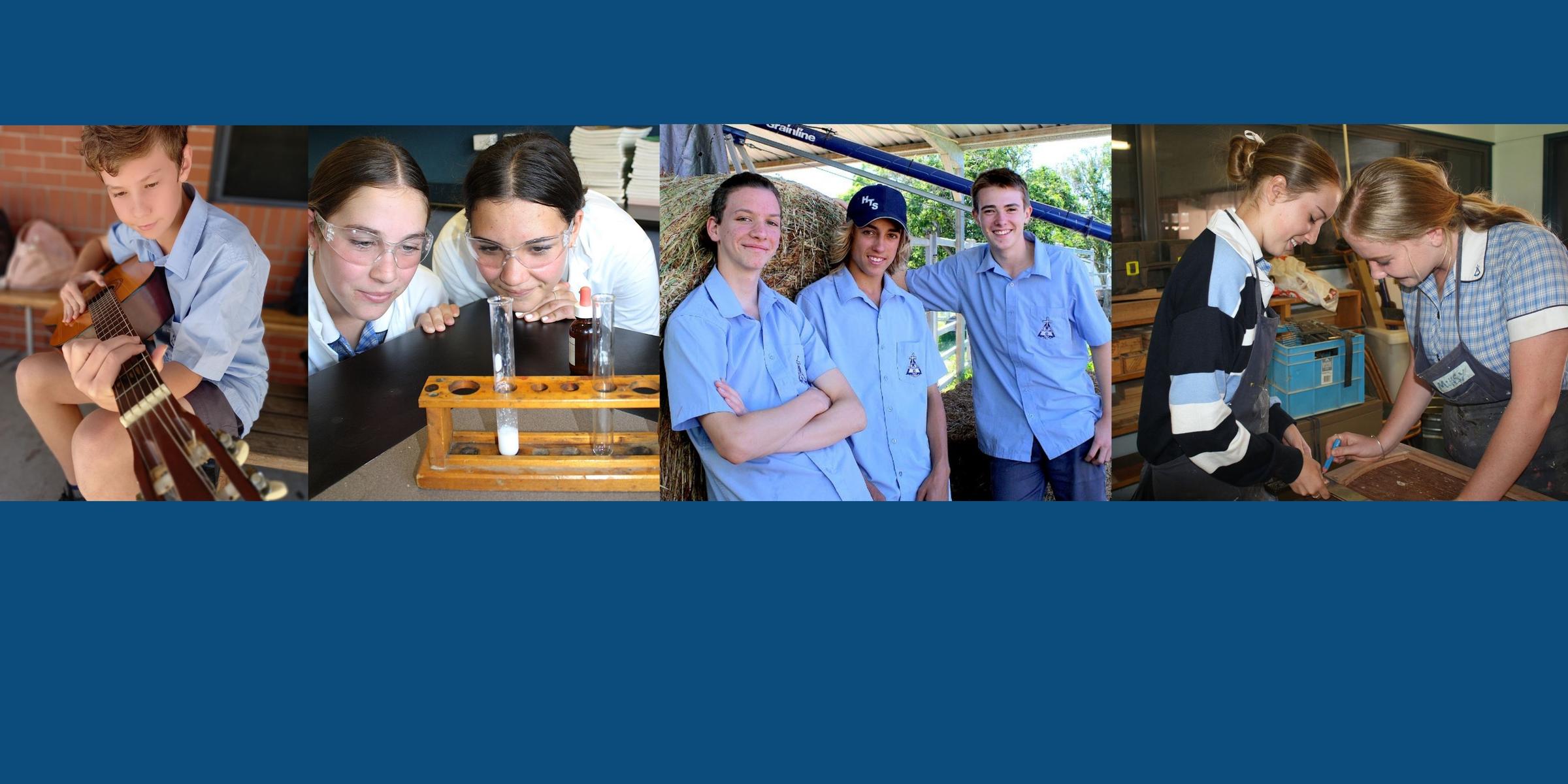
SECONDARY NEWS
From the Assistant Principal
Miss Kim Bailey
kbailey@arm.catholic.edu.au
NAPLAN testing begins on Wednesday for all Year 7 and Year 9 students.
If a student is absent on one or more of these days, catch-up sessions will be held. Students have been involved in practice and familiarisation activities in preparation for the NAPLAN assessments. They should ensure that they are rested so that they can complete the tests to the best of their ability.
Elevate Education will return this year to deliver study skills seminars to students in Years 7 - 10. They will be here next Monday and Tuesday.
The focus for the sessions will be as follows:
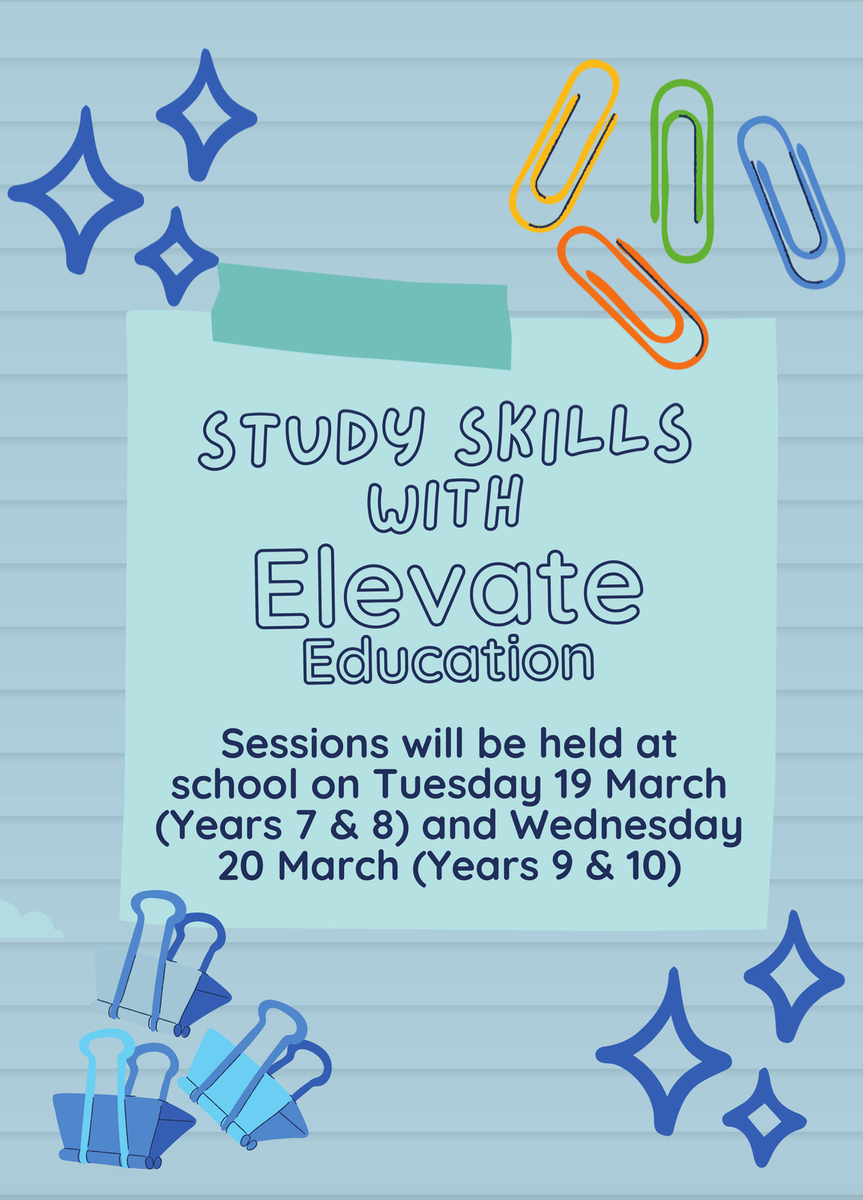
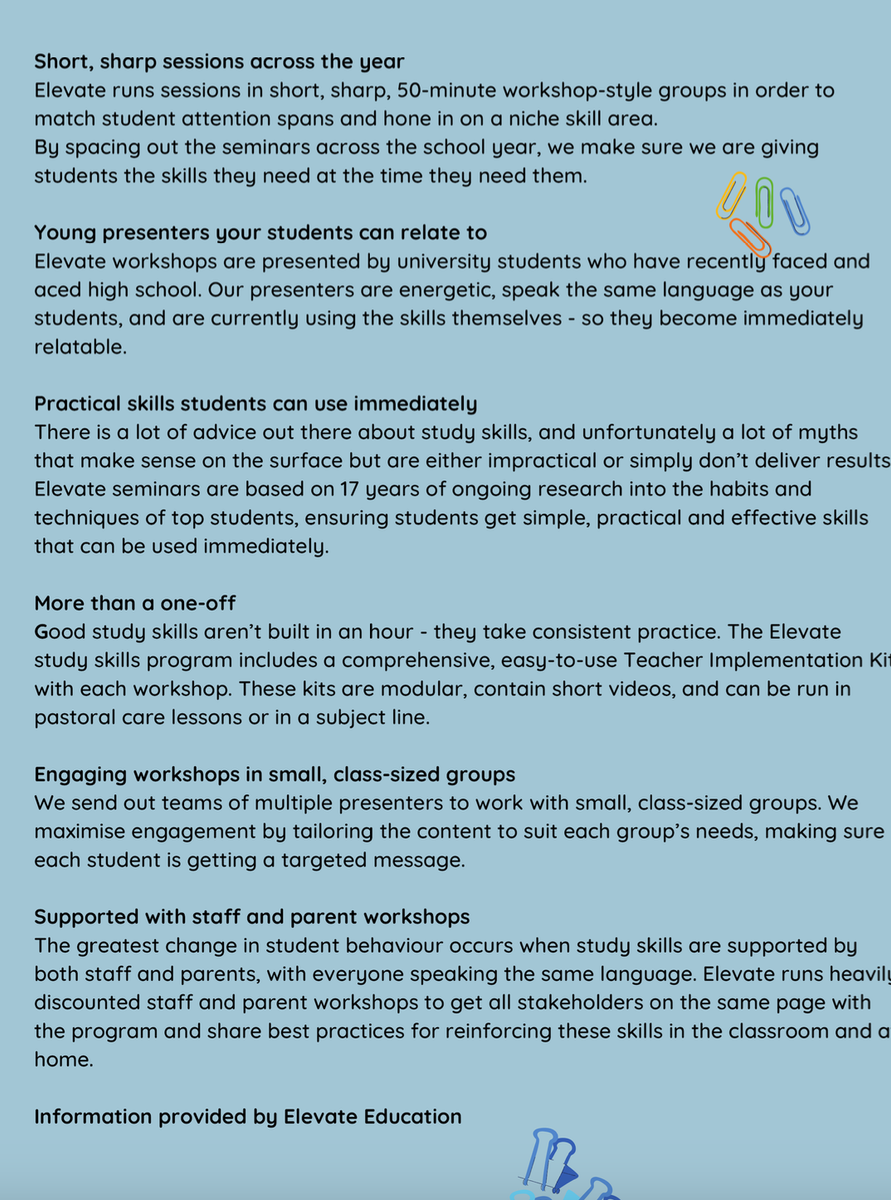


Family Conferences will be held in Week 8 on the following nights for students in Years 7 - 10.
On each of the afternoons, teachers will be available from 3.45 – 5.45 pm in the Holy Trinity Hall. As in past years, parents are strongly encouraged to bring their children to participate in the conversation. The conferences will allow you to discuss your child’s progress with each of his/her subject teachers. Each meeting will be restricted to a five-minute maximum per subject; this should allow all conferences to take place in the allotted time. Should there be a need for an extended discussion, arrangements can be made with the teacher concerned or with the Assistant Principal.
The Family Conferences offer an opportunity for you to find out how your child is getting on with classmates, whether there are areas in which they excel, any aspects that are causing difficulties, and what they can do at home to build on their strengths or overcome any weaknesses. Teachers are helped considerably by getting to know parents and gaining information from them to enhance their child’s educational and social experiences.
The protocols are as follows:
Term 1 Progress Reports were distributed to students last Friday. The reports are also available via Compass. Please contact the subject teacher or Miss Bailey if you have any questions. Family Conferences are in Week 8, which will also allow you to discuss the report with teachers.
Good luck to the Chess team competing against Inverell High School today.
Diocesan Rugby League Trials
Congratulations to Matilda Thompson (U/16s girls) and to the U/15s boys who travelled to Lismore last week to trial for diocesan rugby league teams.
Matilda was successful and selected to go on to the next stage and trial for Northern Country in South West Rocks in Week 10.
Science & Engineering Challenge
Last Friday I accompanied 32 students to the RSM Club to participate in the annual Sapphire City Science and Engineering Challenge. This event is conducted through the combined efforts of the University of Newcastle and the Rotary Clubs of Inverell.
Schools from around the district participated and competed against each other over eight different STEM activities that challenged their problem-solving abilities. Our students performed well in all activities, with Holy Trinity School placing fourth overall on the day.
Over the course of the day, I received many compliments regarding our well-mannered students from the representatives of the University of Newcastle, the Rotary Clubs, and the teachers from the other schools involved. Congratulations to all of the students for their participation and enthusiasm on the day and for representing their school with pride.
Mrs Malynda Hiscock
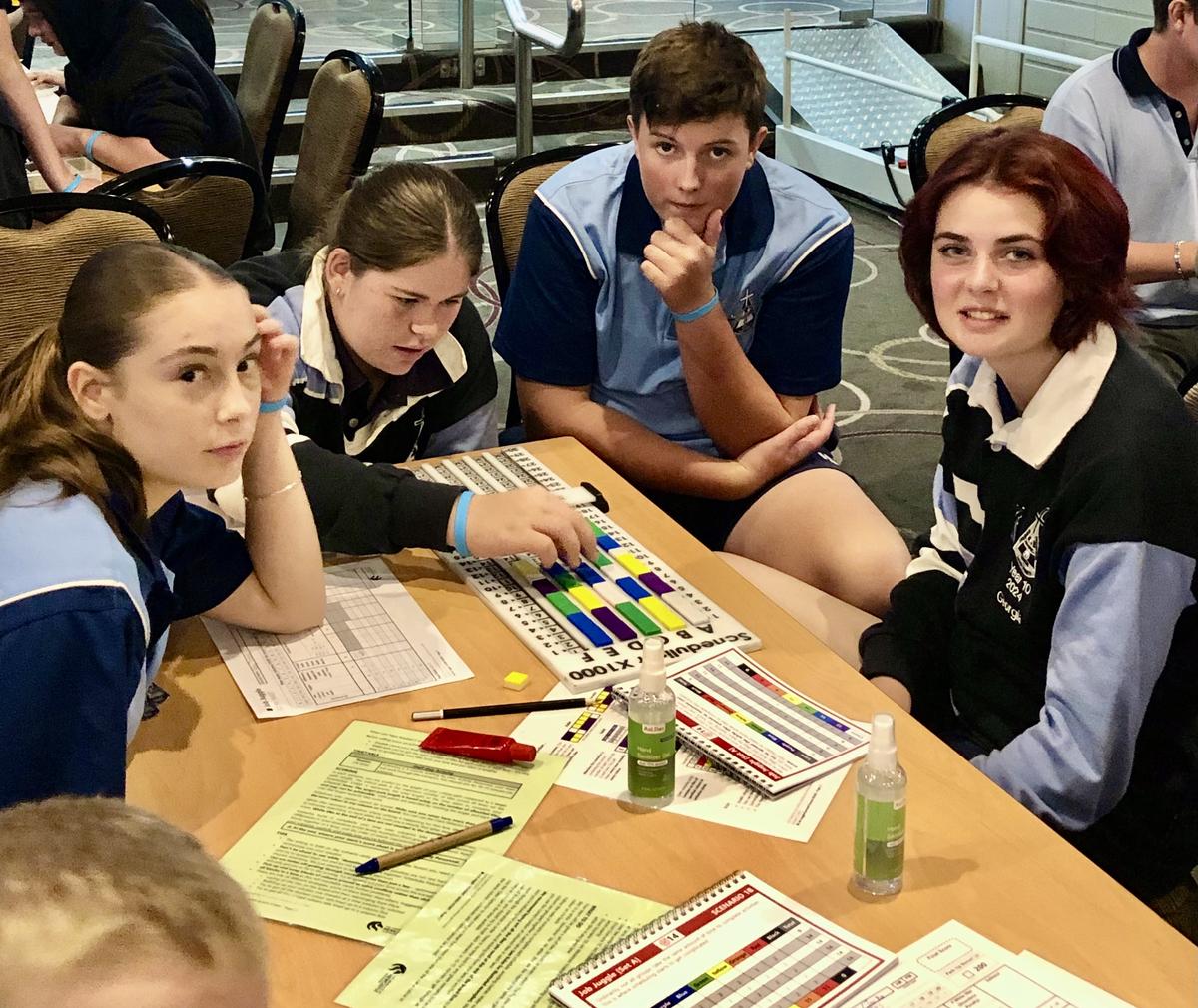
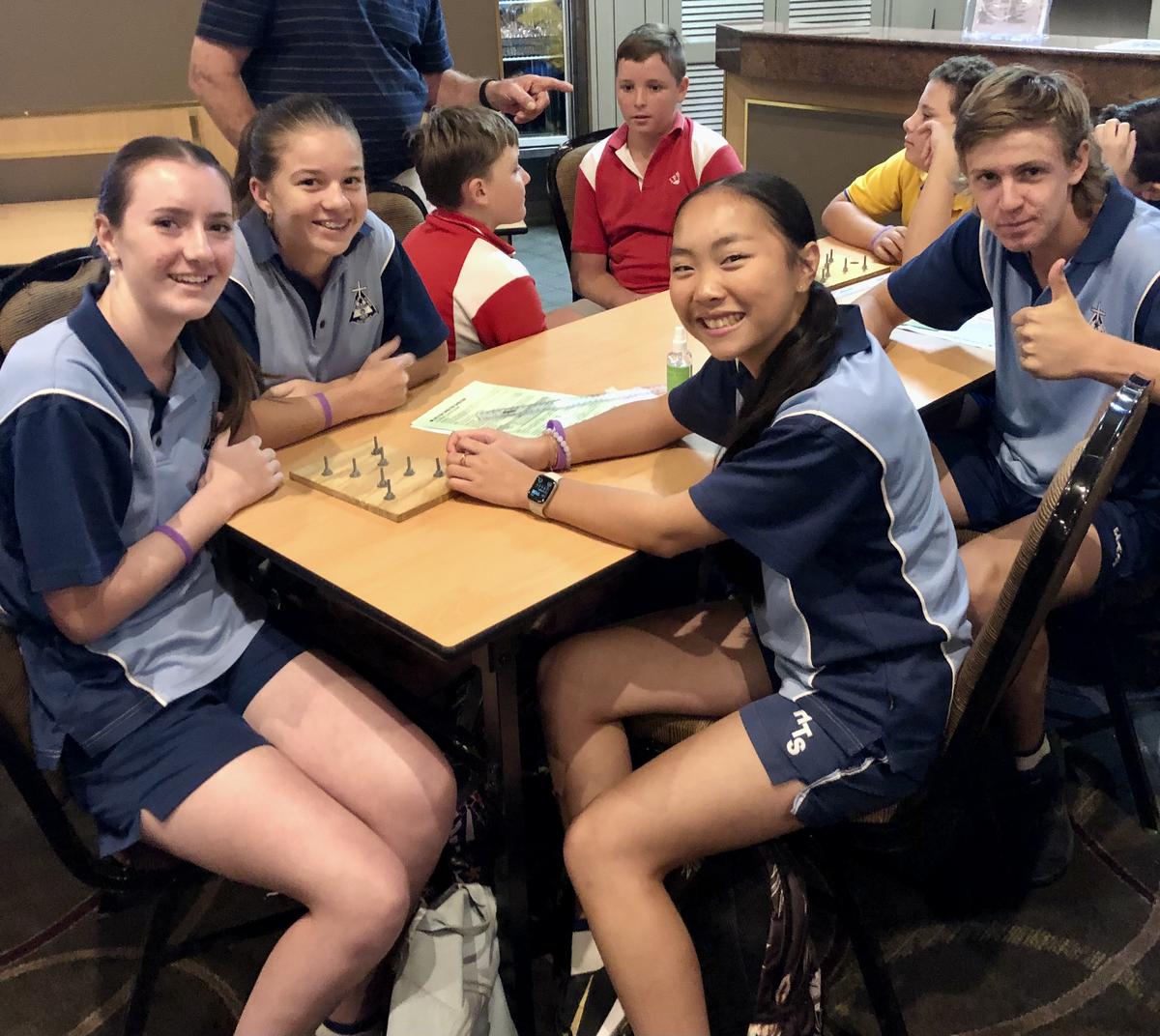
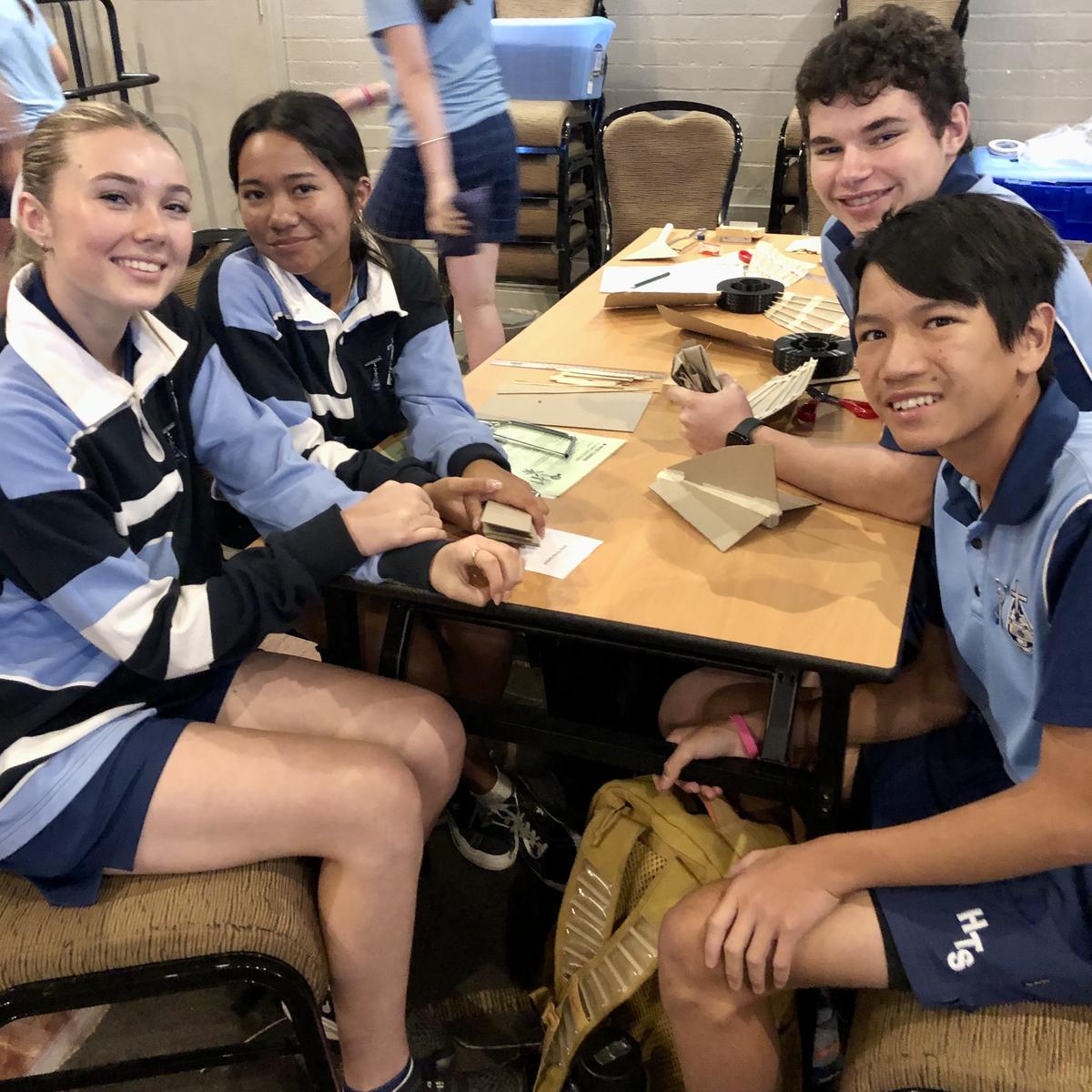
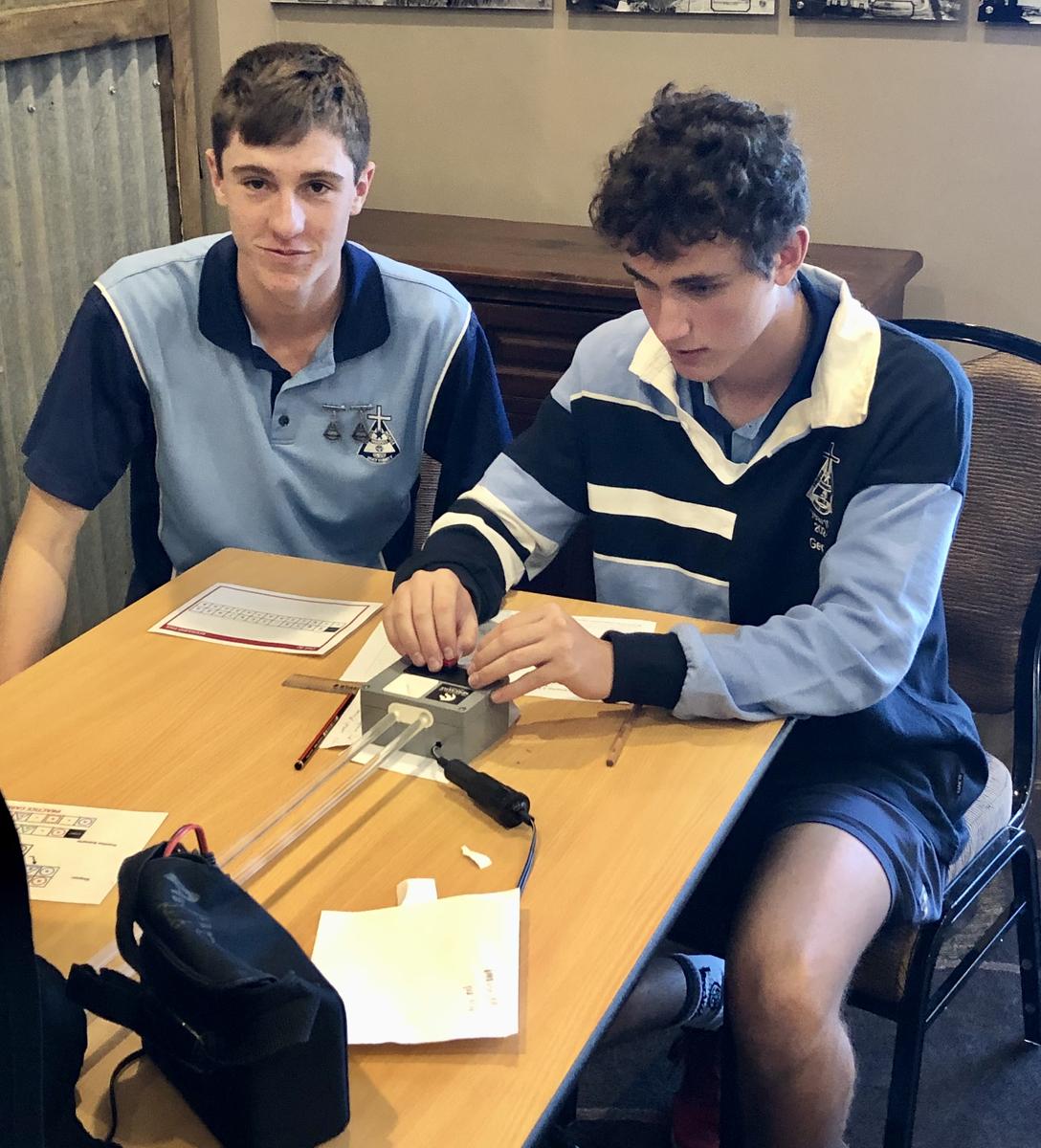
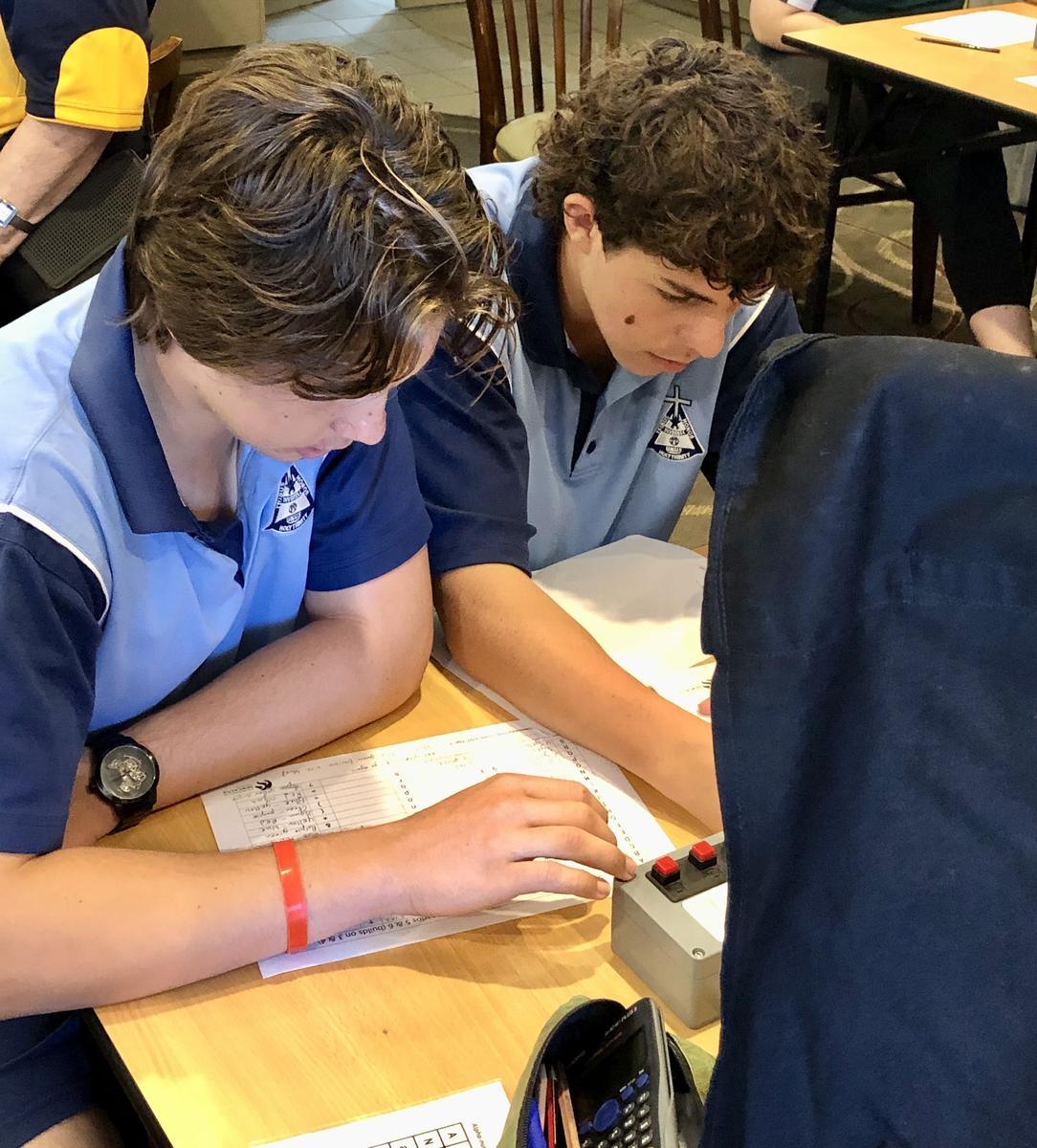
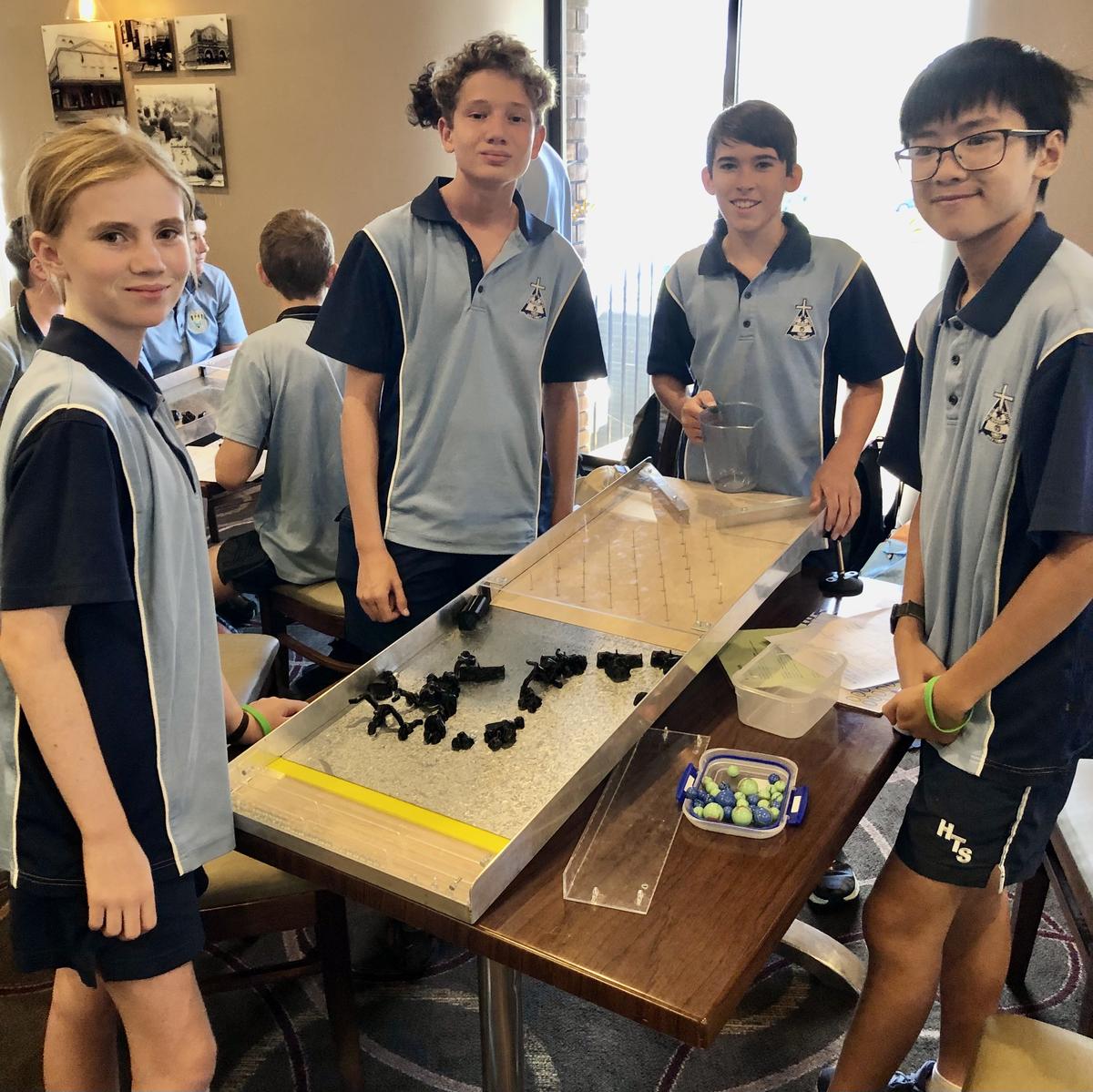
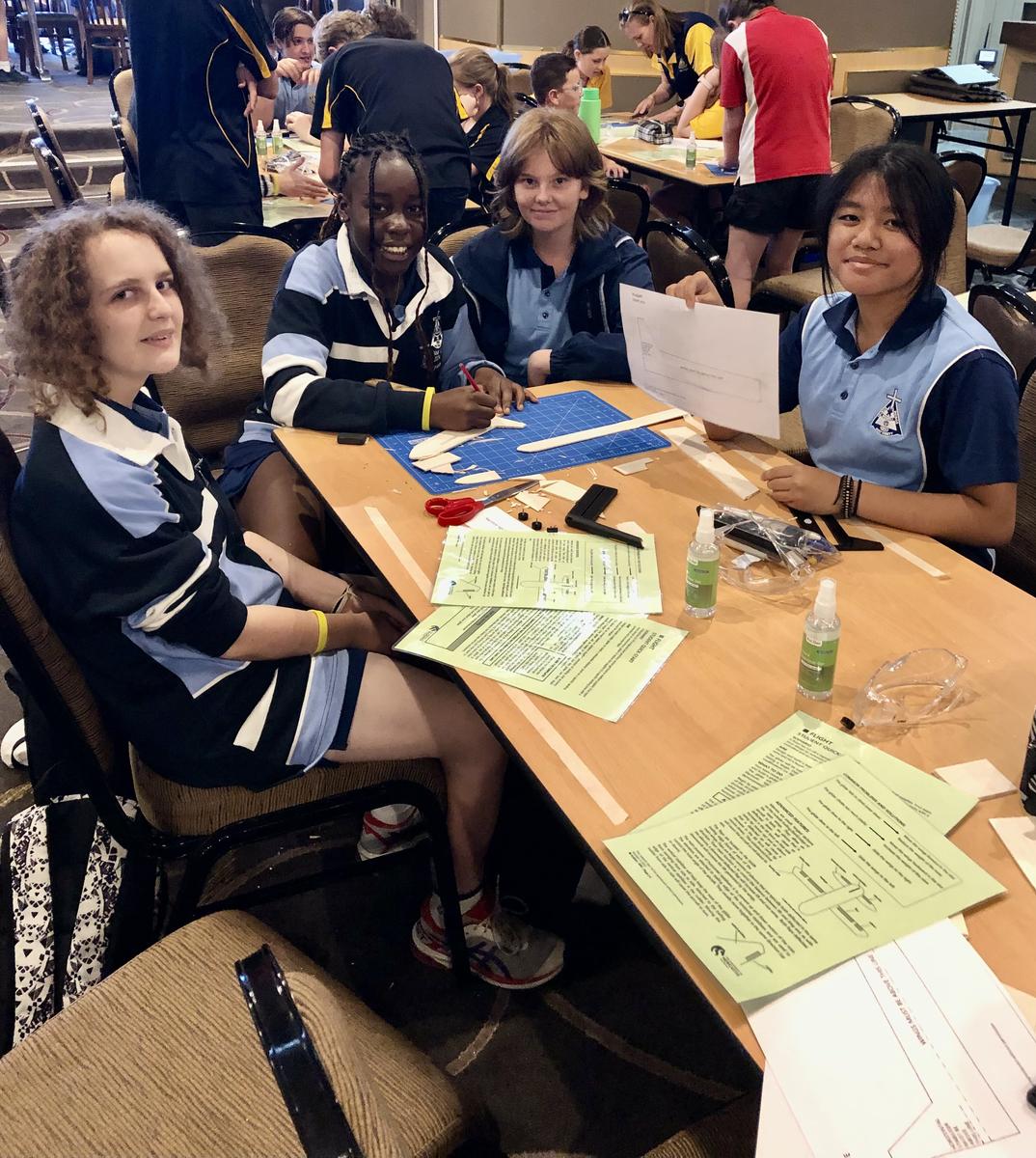
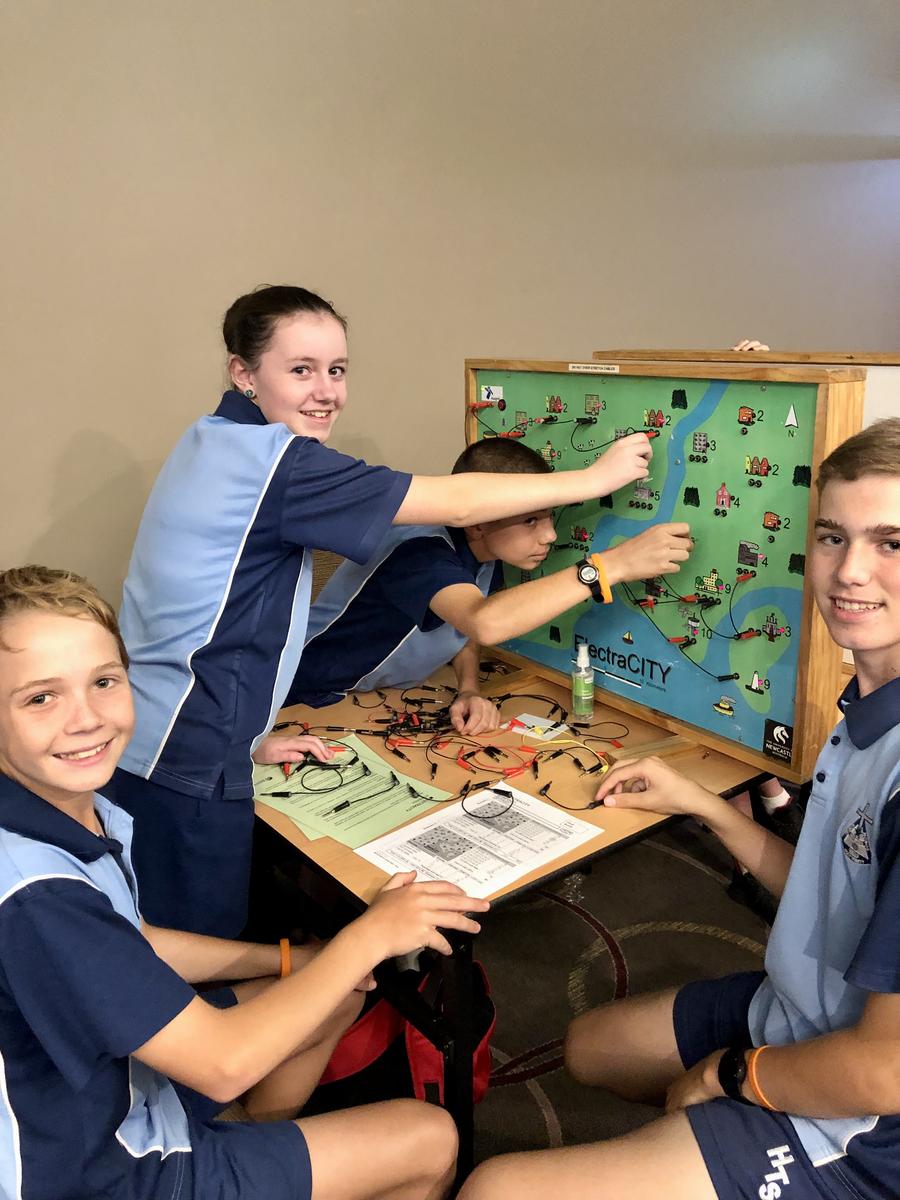
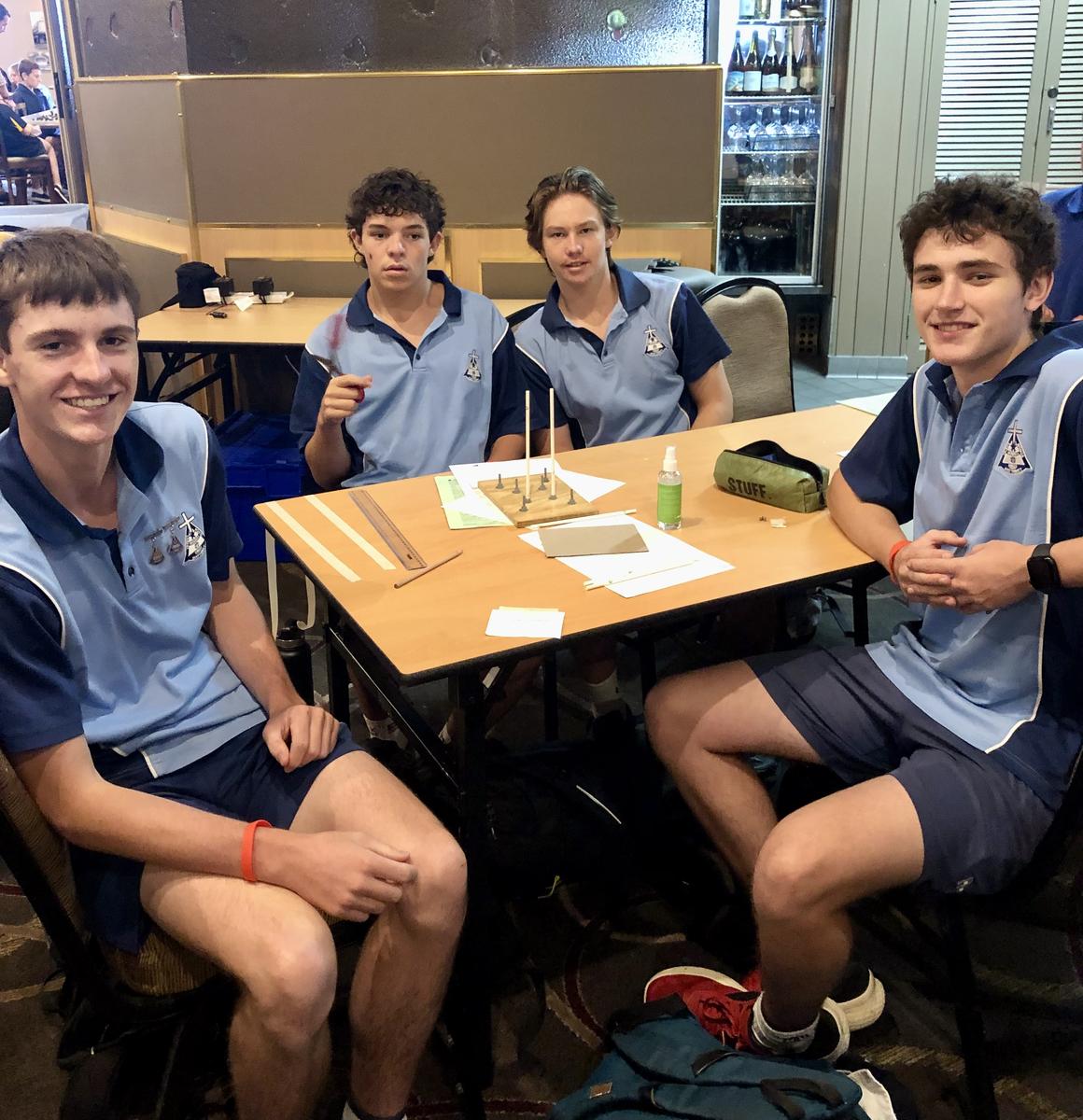
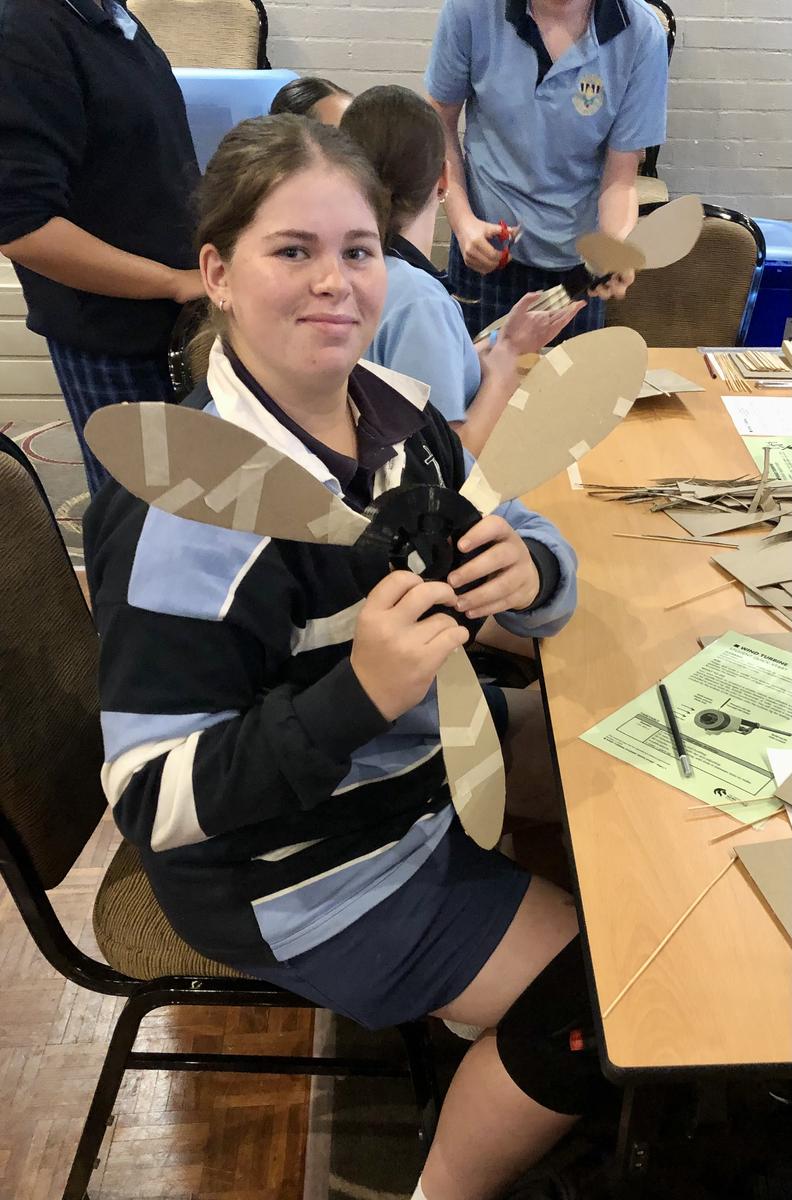
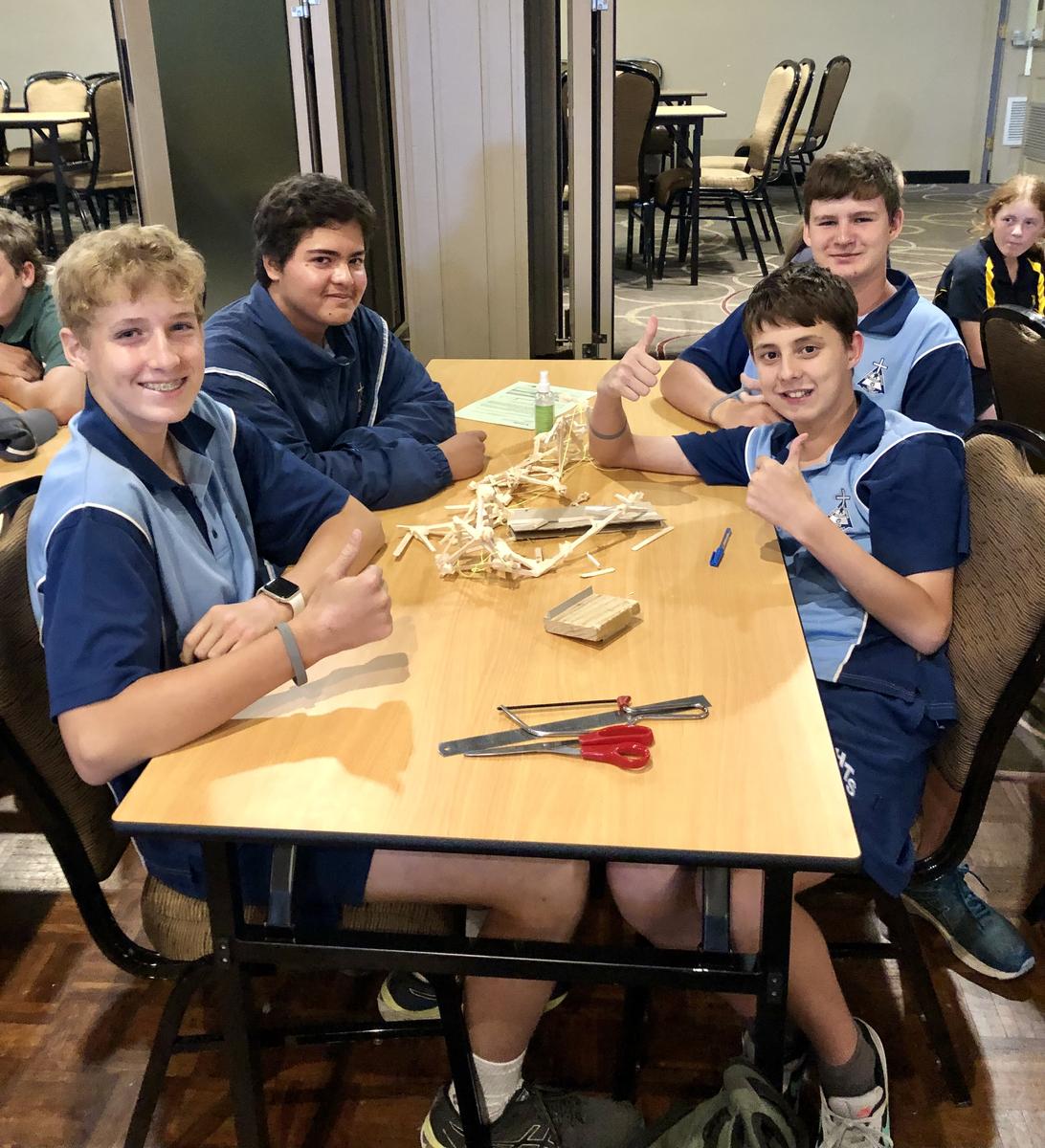











As part of their studies of Environmental Change and Management Year 10 Geography undertook fieldwork last Thursday. The students, accompanied by Mrs East visited Lake Inverell to investigate the health of the Macintyre River system. Mr Andrew Walsh from Local Land Services joined us and shared his knowledge and expertise with us in this area.
The students gained valuable insight into the ways in which the health of a river system is determined and participated in some water quality testing and a water bug survey. Management strategies to maintain healthy waterways were also discussed.
We would like to thank Mr. Walsh for giving up his time and providing the students with this valuable learning opportunity.
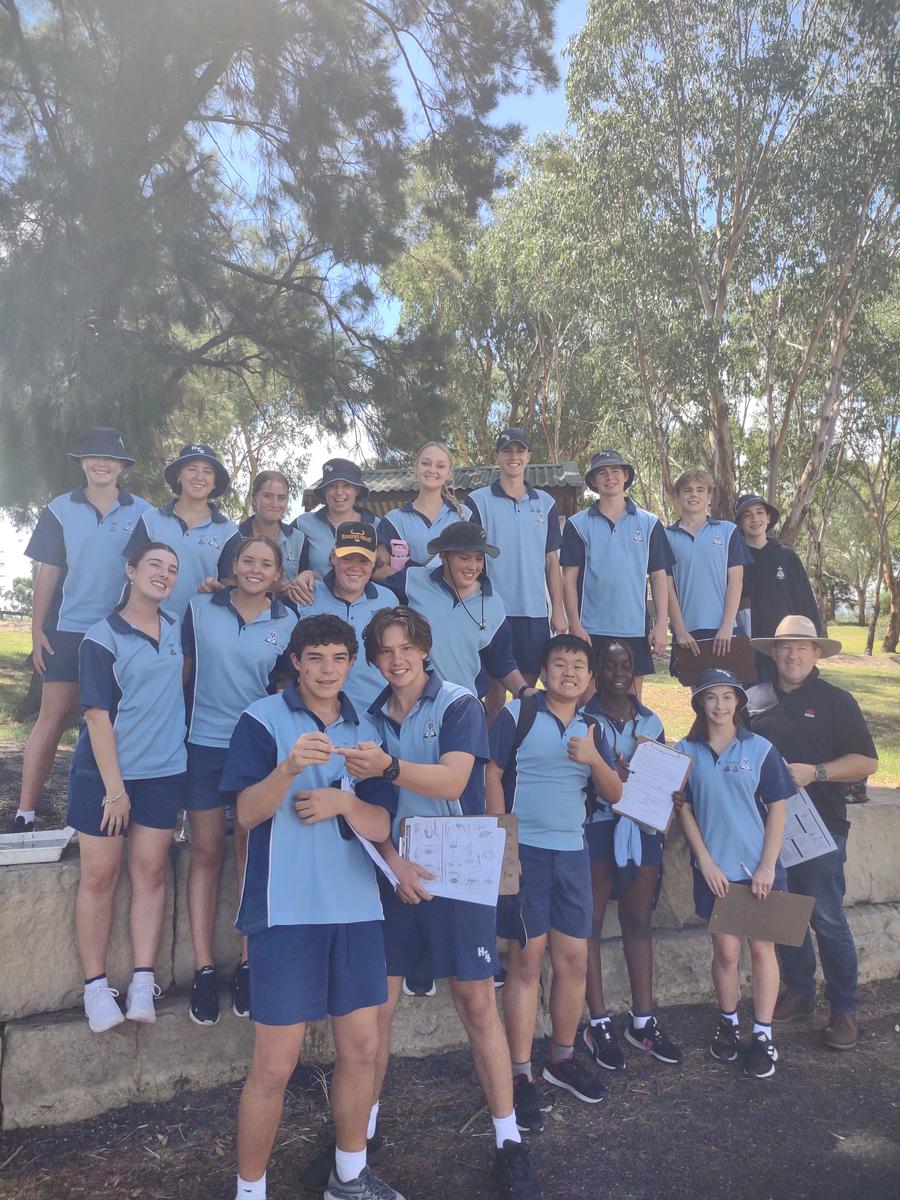

Several Year 10 students are attending the Health Careers Forum today in Tamworth.
The University of Newcastle Department of Rural Health (UONDRH) will conduct the annual Health Careers Forum (HCF) for North West New England Secondary schools. The forum will focus on Year 10 and 11 students who have a clear interest in a career as a health professional.
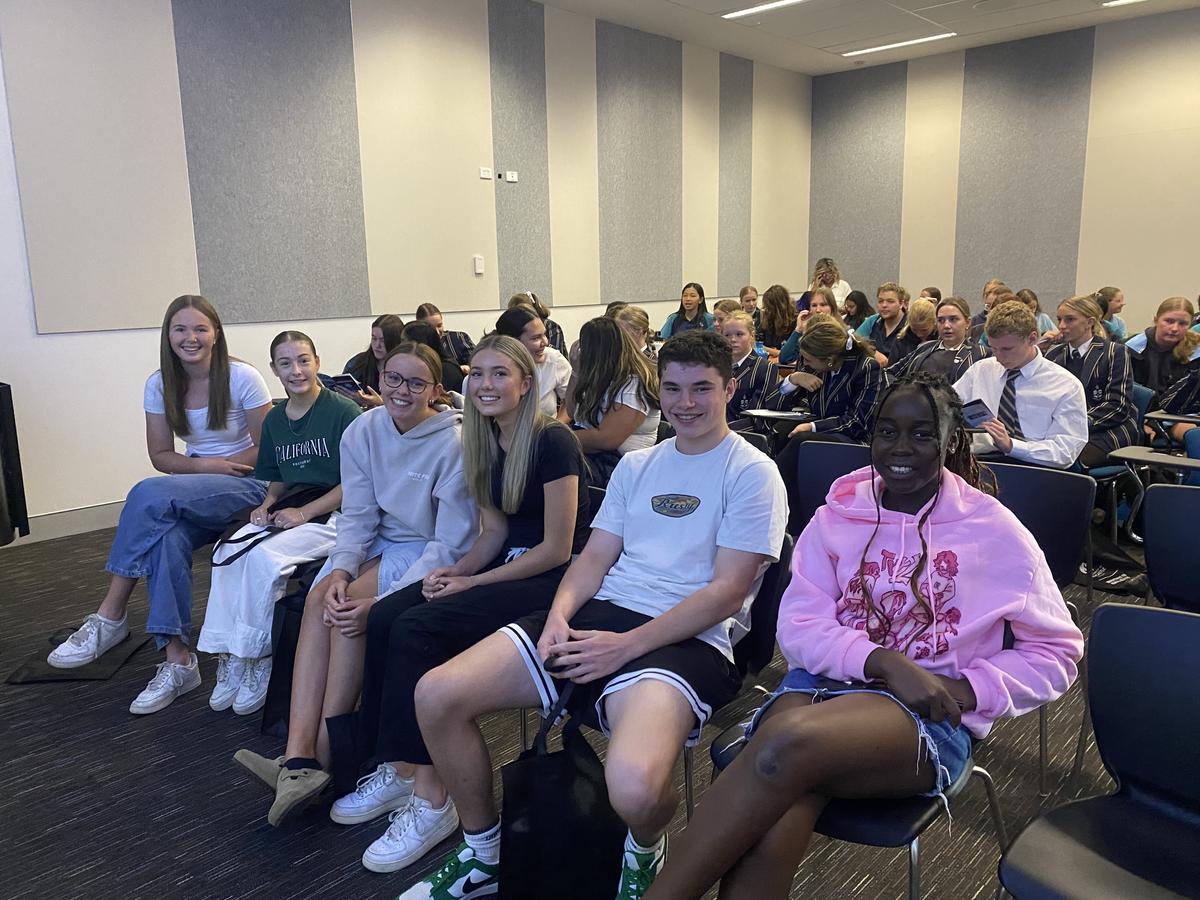

If you have any questions or concerns about your child's learning or wellbeing, please make contact with Miss Bailey, your child's Pastoral Care teacher or their subject teacher. We are only too happy to assist.
Year 7:
7E - Mr Peter Ehsman
7J – Mr Jack Jeffery
7K - Miss Kristina Majetic
7M – Mrs Veronica McCormick
Year 8:
8G - Mr Anthony Gaias
8M - Mrs Christine McLachlan
8T - Mrs Kathy Townsend
8W - Mr Sam White
Year 9:
9C – Miss Claudia Cush
9E - Mrs Angela East
9U - Mr Uebergang
Year 10:
10B - Miss Kim Bailey
10K - Mr David Koch
Students and parents are encouraged to approach the relevant Pastoral Care teacher if they need assistance.
Stage Leaders
Stage 4 - Mr Anthony Gaias
Stage 5 - Mrs Angela East
Miss Kim Bailey
Miss Claudia Cush
Mrs Claudia Dolbel
Mrs Angela East
Mr Peter Ehsman
Mr Anthony Gaias
Miss Alana Goldman
Mrs Mary-Jane Guest
Mrs Malynda Hiscock
Mr Jack Jeffery
Mr David Koch
Miss Kristina Majetic
Mrs Veronica McCormick
Mrs Christine McLachlan
cmclachlan@arm.catholic.edu.au
Mr Matthew Pye
Mrs Jane Taylor
Mrs Katherine Townsend
Mr Blake Uebergang
Mrs Carrie Watchirs
Mr Sam White
Staff can be contacted directly using the email address above or via the Compass portal.
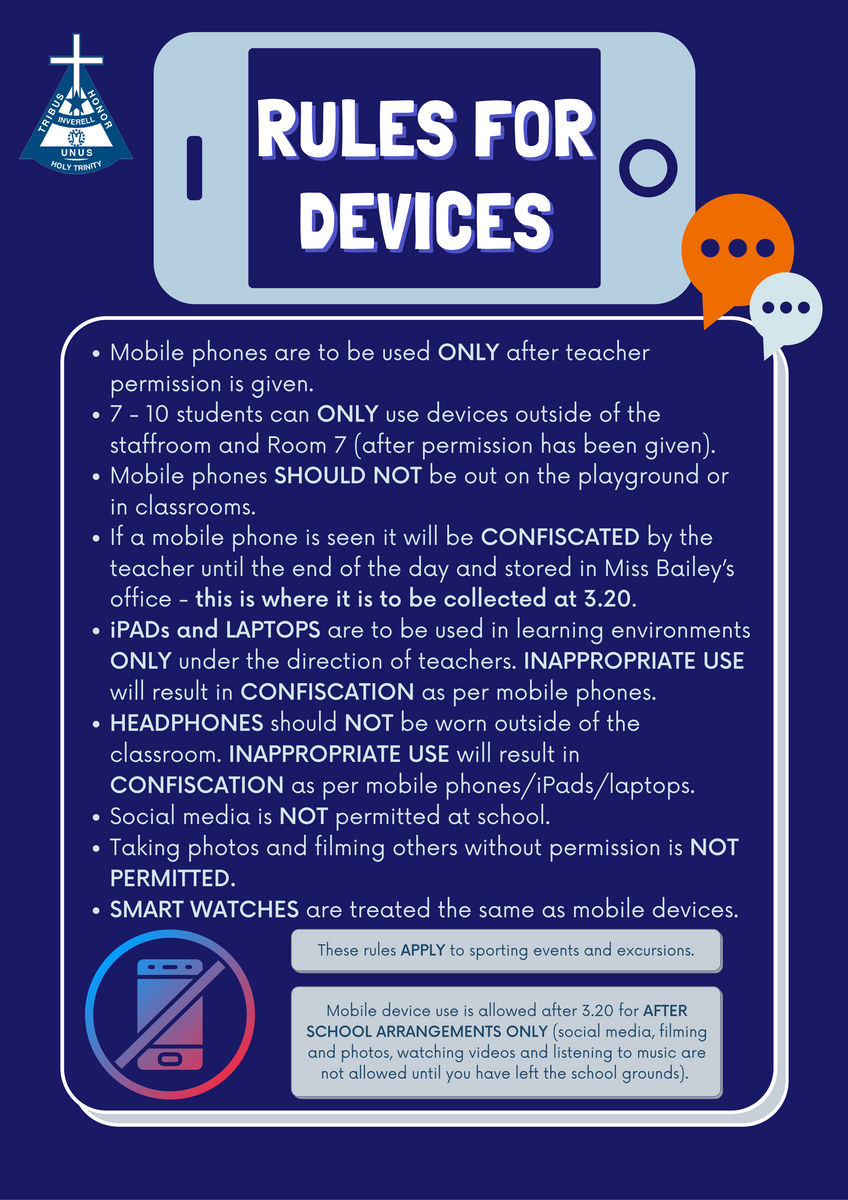

Students are not permitted to use their devices unless instructed by a teacher. This includes both the classroom and the playground. The students are aware of this policy and receive constant reminders in Pastoral Care, their teaching classes and there are also many posters displayed all around the school.
If a student needs to use their device, they must first seek permission from a teacher and use it in an area designated by the teacher. This is usually under their direct supervision or outside the Secondary staffroom.
If students are unable to follow this policy, their phones are confiscated and placed securely in Miss Bailey's office, where they are collected by the student at the end of the school day.
Teachers record each time a device is confiscated. After it is confiscated for a second time, it remains at school until it can be collected by a parent or carer.
Artificial light from electronic and other devices generally emits a blue light (it may not look blue, but that is the underlying light). Blue light is a type of non-visible light at a very short wavelength.
What does blue light do to the human body?
Non-visible light has a lot of energy, and studies show that a lot of exposure to this type of light can impair your sleep cycle. During sleep lots of essential physical processes take place and it is also when learning from the day is consolidated in memory. This means that having enough sleep is vital for students.
Blue light is naturally generated only during the day, from sunlight. When it gets dark, naturally occurring blue light ceases, signalling the body to produce melatonin, the hormone associated with sleep. Using artificial lighting and devices that emit a blue light at night confuses the body clock (the body’s natural sleep-wake cycle) by stopping the body from producing melatonin. This can result in disrupted sleep patterns, including difficulty in falling asleep and staying asleep and shortened sleep duration.
Those at greatest risk from night-time exposure to blue light are those with existing sleep disorders and adolescents who often experience delayed sleep patterns as a result of biological changes.
What can students do to limit their exposure to blue light at night?
Some suggestions include:
Here are 5 reasons you can give your child as to why they should start working on their assignments immediately.
1. GET YOUR BRAIN THINKING ABOUT THE TOPIC: Even if your assignment isn’t due for weeks, start thinking about it immediately. At the very least, answer the key starter questions on the day you get your assignment. Even if you are not thinking about it directly, your subconscious will be hard at work.
2. FIND LIBRARY RESOURCES: Although the school or local library will probably not be your main source of reference, you should drop in soon after receiving the assignment. Your teacher will probably have alerted the school librarian to the assignment, and reference books, magazines etc., may well be displayed. These will disappear quickly if the whole class has the same assignment. Books, periodicals, and magazines can sometimes be a useful general overview for an assignment, and they help to clarify a direction as you begin to immerse yourself into the assignment topic. It is not a good idea to only use Google!
3. DISCOVER OTHER RESOURCES: You could also ask your local librarian for any additional direction on where to look for resource material for your assignment. Librarians are often your best source of information. They know how to help people access relevant and appropriate information, in books, the Internet or computer-based references. One of the challenging aspects of Internet-based searches for school students is the complexity, language and purpose of websites, not to mention bias and reliability.
4. STARTING EARLY MEANS MORE TIME TO EXPLORE & ASK FOR HELP IF NEEDED: If you do some initial research on the assignment points you’ve identified through the library, references your teacher may have given you, school textbooks, and general internet search engines, you could find yourself having more direction in your research. For example: Perhaps there isn’t enough information, or perhaps you find you don’t understand important concepts, or perhaps you need to speak to your teacher to get further clarity. If you find this out early, you will still have plenty of time to plan, research, write and present your assignment. Imagine if you didn’t start your assignment for a week or so, and then discovered you needed more guidance. You could easily run out of time.
5. CREATE A SAFETY NET: Starting your assignment immediately will give you a safety net in case you get sick, or something unexpected happens. Assignments usually require a large amount of time; students must plan a strategy or schedule to ensure they are completed. You should always have a schedule that allows for the unexpected.
So get started today!